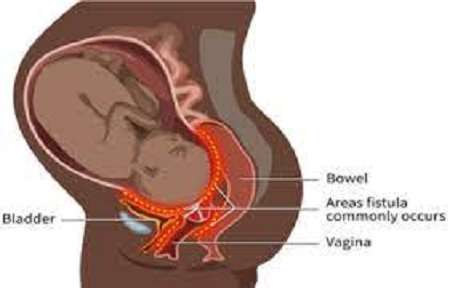
Consultant Obstetrician and Surgeon at the Aishah Buhari Mother and Child Hospital, Eiyekonrin, Kwara State, Dr Shukura Okesina, has said Nigeria records 12,000 new cases of obstetrics fistula annually.
He revealed this while speaking with the News Agency of Nigeria during the commemoration of International Day to End Obstetrics Fistula.
The programme was organised by the Medical Women Association of Nigeria, Kwara Chapter, to sensitise the public on the danger of fistula in women.
The theme of the day was titled, “20 Years on Progress but Not Enough! Act Now to End Fistula by 2030”.
Dr Okesina explained that the day is important as it raises awareness and support for women and girls living with obstetrics fistula.
According to her, Nigeria carries 40 per cent of the burden, recording 12,000 new cases annually.
She added that about 150,000 to 800,000 women are affected by fistula in Nigeria, which is a burden for the country.
“Obstetric fistula is one of the most serious and tragic childbirth injuries. It is a hole between the birth canal and bladder and/or rectum, which is caused by prolonged, obstructed labour without access to timely, high-quality medical treatment. The incidence is higher in the Northern part of the country,” she lamented.
The World Health Organisation explained that an obstetric fistula is an abnormal opening between a woman’s genital tract and her urinary tract or rectum.
It is a hole in the birth canal caused by obstructed labour. According to WHO, it is estimated that more than 2 million young women live with untreated obstetric fistula in Asia and sub-Saharan Africa.
Dr Okesina said the risk factors of the medical condition include poverty, poor nutrition, lack of education, poor health-seeking behaviour, lack of antenatal care, and refusal or delay in delivery by skilled birth attendants in the hospital.
She, however, added that the condition can be surgically corrected after trying catheter treatment for four weeks and the woman still leaks urine uncontrollably through the vagina or leaks faeces through the vagina, saying that repair is usually done three months after the injury.
The expert pointed out that the condition is not contagious because it is a birth injury caused by the fetal head putting pressure on the bladder/urethra in front and rectum/anus behind.
This, she said, leads to pressure necrosis forming a hole through which urine or faeces leaks through the vagina.
The obstetrician warns against stigmatizing women with fistula, adding that there is a need to show empathy and compassion to them.
“Some of these women are abandoned by family and friends because they smell terribly. They lose their babies and their husbands leave them. They are poor and can’t seek help and are faced with Socio-economic dilemmas,” she said.
The expert noted that there are specialist hospitals in the country with fistula surgeons or Uro-gynaecologists who can repair such cases, adding that the first repair can achieve 97 to 100 per cent success rates in good hands.
“There are National Obstetric fistula centres in the geo-political regions of the country. There are also fistula clinics and repair units at Aisha Buhari Mother and Child Hospital, Eiyekonrin and at the University of Ilorin Teaching Hospital,” she said.
Also speaking, Dr Misturah Adana, the Secretary of MWAN-Kwara, advised on the need for preventive measures to be adopted against fistula.
She advocated for girl-child education, public awareness campaigns, community access to obstetric care, and legislation that addresses detrimental cultural behaviours.
Dr Adana said the age of the first pregnancy of girls must be factored among other things, which she said are essential to reducing the incidence of genital fistulas. (NAN)













